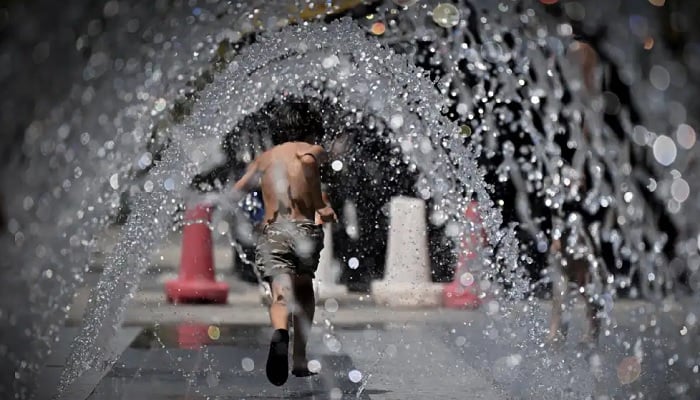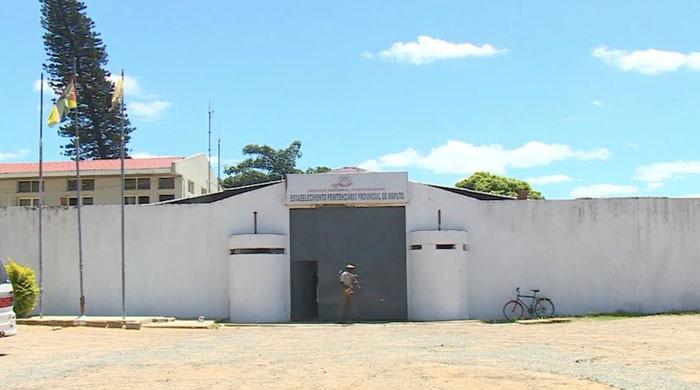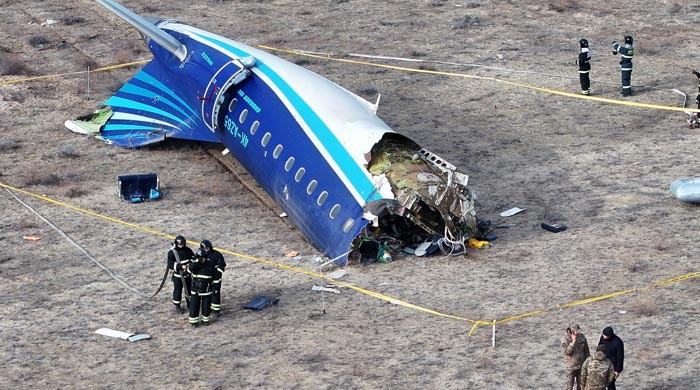Record heatwave: Sun grills Northern Hemisphere amid global warming blow-up
While the Northern Hemisphere grapples with the heat, parts of Asia are experiencing torrential rain and its devastating consequences
July 17, 2023

Across Europe, Asia, and North America, scorching temperatures and the looming threat of wildfires have prompted health warnings and evacuations.
Italy's islands of Sicily and Sardinia are bracing for potentially historic heat, with temperatures predicted to reach a staggering 48 degrees Celsius (118 degrees Fahrenheit).
As the heatwave intensifies, individuals like Lilu Da Costa Rosa, a Brazilian saleswoman visiting Rome, are struggling to cope with the extreme temperatures, resorting to mini fans, umbrellas, and ample water supplies.
Even in the Vatican, where 15,000 people gathered to hear Pope Francis lead prayers, the heat was so intense that priests were "sweating like hell."
In Japan, heatstroke alerts have been issued for millions of people across 20 of its 47 prefectures. Near-record high temperatures, reaching nearly 40 degrees Celsius in Tokyo, pose life-threatening conditions.
Japan's previous highest temperature of 41.1 degrees Celsius, recorded in 2018, is expected to be surpassed, according to the meteorological agency.
Meanwhile, parts of the United States are also grappling with oppressive heatwaves affecting southern and western states.
Death Valley in California reached a near-record temperature of 52 degrees Celsius, while wildfires continue to ravage Southern California, leading to evacuation orders.
Europe is bracing for what experts are calling "the most intense heatwave of the summer and also one of the most intense of all time." Italy, in particular, is preparing for temperatures to soar to 40 degrees Celsius in Rome, potentially breaking the previous record set in 2007.
The Acropolis in Athens has been closed for three consecutive days due to the scorching heat.
Romania and Spain are also expecting extreme temperatures above 40 degrees Celsius, with the latter facing a new heatwave that may persist until Wednesday.
While the Northern Hemisphere grapples with the heat, parts of Asia are experiencing torrential rain and its devastating consequences.
In South Korea, heavy rains have triggered floods and landslides, resulting in the loss of lives and people trapped in flooded areas. Northern Japan has also been hit by flash floods, leading to fatalities.
In India, monsoon rains have caused major flooding and landslides, claiming numerous lives. Climate change is believed to be exacerbating these extreme weather events.
As the world witnesses these alarming weather patterns, US climate envoy John Kerry has arrived in China to resume climate talks between the world's two largest emitters of greenhouse gases.
The Biden administration has recognized climate change as an area for potential cooperation with Beijing, despite other areas of tension.
While it is challenging to attribute specific weather events to climate change, scientists emphasize that global warming, fueled by the reliance on fossil fuels, is contributing to the intensification of heatwaves.
The European Union's climate monitoring service recently revealed that June 2021 was the hottest June on record globally.











